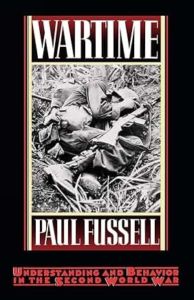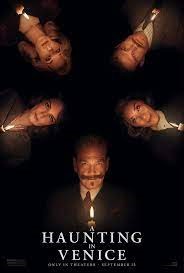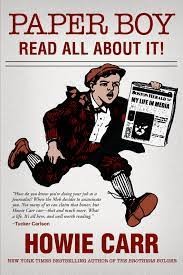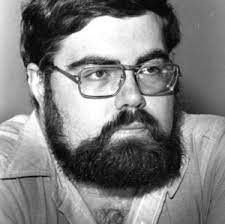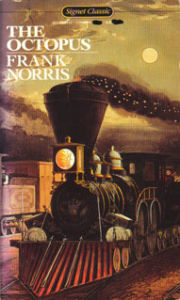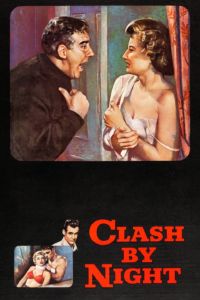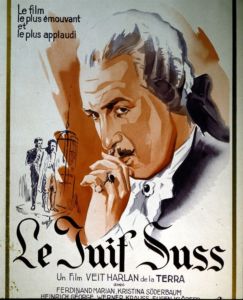Tag: Steven Clark
-
Part 1 of 2 (Part 2 here)
It was morning in America and Christmas Eve in Boston, but Reagan’s good cheer, once again making America the greatest show on Earth, had little effect on me because I was stuck doing a double shift.
I was a security guard, and “doubles,” as we grudgingly called them, were a staple of the trade. In addition to being a guard, I was also a writer, artiste, and bon vivant, but survived on the paltry paycheck coming from door number one. I’d been in Boston for four years and was poor, but happy. (more…)
-
Paul Fussell
Wartime: Understanding and Behavior in the Second World War
New York: Oxford University Press, 1989Most readers know Paul Fussell from his satiric Class: A Guide Through the American Status System, which, intended as a humorous study of American mores, has been accepted as a legitimate guideline to what H. L. Mencken called Boobis americanus. (more…)
-
A Haunting in Venice is a Halloween movie and also sees the return of the detective Hercule Poirot to the screen, as most recently played by Kenneth Branagh, who directed this film. The story is lifted from Hallowe’en Party, a 1969 Christie novel set in Britain, although here it is moved to 1949 Venice. Little of the original story remains, although bobbing for apples is retained as the staging of an attempted murder. Since this is Venice, floods rage outside, and a past drowning adds to the haunted setting. It all fits. (more…)
-
If Holden Caulfield did battle with the phonies, Howie Carr does it with hacks. Howie is a Boston journalist whose mischievous face is a combination of Jimmy Cagney and Mephistopheles, offering Irish bravado and tempting the reader, listener, or viewer — he’s done his act for all three — to see the facts and get angry. In Paper Boy, Howie’s memoir, there’s a lot to get angry about, but almost every page bristles with laugh-out-loud moments. (more…)
-
Now that we are wallowing in a major war in Ukraine and are caught in the throes of a cultural and political revolution in the United States, I recall an interesting arthouse film I discovered some years ago when I lived in Boston at one of the queens of arthouse theaters: Memorias del Subdesarrollo, or Memories of Underdevelopment, (more…)
-
Part 3 of 3 (Part 1 here, Part 2 here)
Harold had planned to quit after A Mighty Fortress, but there was another story to be told, and a few months later, in late 2005, I found a manuscript in my mail. I opened it, smelling the heavy aroma of tobacco and old paper as I set my eyes upon a draft of The Brigade, Harold’s fourth Northwest novel. I agreed to be one of the proofreaders, and got to work. (more…)
-
2,570 words
Part 2 of 3 (Part 1 here, Part 3 here)
Harold Covington’s life and work centered on a determination some might call fanaticism. He clearly defined what his life was about:
There were as well several low ebbs in the past thirty-three years, when I could have slid off the stage into obscurity and into some shitjob, and the world would have forgotten about me. By choice, I never availed myself of those chances to get out of the life, and I have no reason to wail that “I never got a break.” I declined to take the breaks offered because to do so entailed making my peace with a world that is putrid, poisonous, and evil to its very wellsprings. One does not make peace with a loathsome disease. One does not come to accept evil as “Just one of those things.” (more…)
-
Part 2 of 2 (Part 1 here)
Frank Norris (1870-1902) was best known for MacTeague, a rough, unvarnished view of American life, although The Octopus (1900) demands attention as well. While Steinbeck wrote a memoir/paean to life in Salinas, The Octopus deals with ranchers in the San Joaquin Valley.
Norris’s work, unlike Steinbeck’s careful imitation of Tolstoy, is exciting and more immediate than ever, concerned as it is with land and power. (more…)
-
-
Since I am avoiding Oppenheimer and Barbie, I went back into the archives. While reading Arthur Miller’s The Price, I conjured YouTube and watched 1948’s All My Sons, where Edward G. Robinson and Burt Lancaster brought a tragedy by Henrik Ibsen to Middle America. I continued my sortie into post-war American cinema with Clash by Night, a 1952 Fritz Lang film based on a 1941 play by Clifford Odets. Considered a strong melodrama, it is a very watchable film dealing with emotions and relationships in post-war America in a semi-noir setting. (more…)
-
1,473 words
Part 2 of 2 (Part 1 here)
Harlan’s film, unlike Mendes’, was an enormous box office success,[1] and it is said that concentration camp guards and the SS were shown this film to remind them of their duties. It is fast-paced, and Harlan shows things: the oppression of Süß’s decrees, Theodora’s corpse, the angry mob, and the people fighting for their rights. Sturm’s calm, civil demeanor is contrasted with Süß’s slick manipulation and George’s overbearing yet sensual Karl. (more…)


